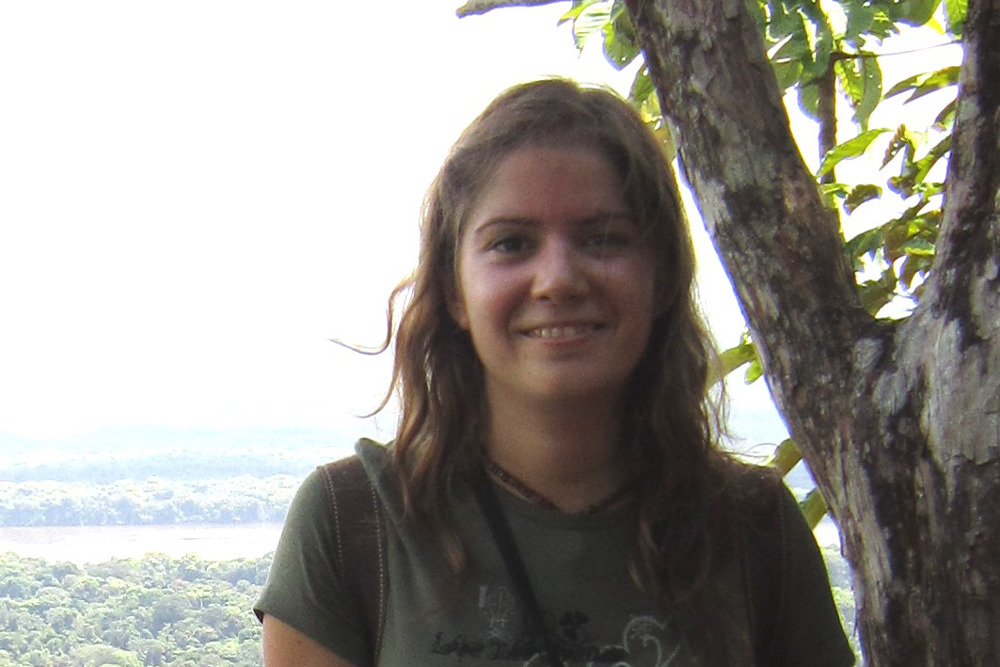Sara Albuquerque

Biografia
Sara Albuquerque concluiu o seu doutoramento em História da Ciência na Universidade de Londres em 2013. Actualmente, é investigadora no IHC — Universidade de Évora. Trabalhou anteriormente no Museu de História Natural em Londres e nos Royal Botanic Gardens Kew como investigadora. Recebeu dois prémios, uma homenagem (Honorary Research Associate, Kew) e é fellow da Linnean Society of London.
Actua nas áreas de Ciências Naturais e Humanidades, com particular interesse em: história da ciência, colecções de história natural, museologia, cultura material, botânica, etnobotânica, botânica económica, redes de conhecimento e encontros inter-culturais.
Áreas de Investigação
- História da ciência
- Colecções de história natural
- Cultura material
- Etnobotânica
Publicações destacadas
- Albuquerque, Sara. “Glimpses of British Guiana at the Colonial and Indian Exhibition, 1886,” Culture & History Digital Journal 5 (2016): e010. DOI: http://dx.doi.org/10.3989/chdj.2016.010 [PDF]
- Albuquerque, Sara. ““Flower of Aristolochia gigas var. sturtevantii used as a hat by a native of British Guiana” – a photograph from Everard im Thurn at the Royal Botanic Gardens, Kew,” Archives of Natural History 42 (2015): 355-356. [PDF]
- Albuquerque, Sara. “Watercolours of orchids native to British Guiana at the Royal Botanic Gardens, Kew, attributed to Hannah Cassels im Thurn (1854–1947),” Archives of Natural History 39 (2012): 344-347. [PDF]
- Albuquerque, Sara, R. K. Brummitt & Estrela Figueiredo. “Typification of Names Based on the Angolan Collections of Friedrich Welwitsch,” Taxon 58 (2009): 641-646. [link]
Projectos principais
- Coordenadora do projecto “Redes de conhecimento na África Oitocentista: uma abordagem das Humanidades Digitais dos encontros coloniais e do conhecimento local nas narrativas de expedições portuguesas (1853-1888)” — Acolhido pelo IHC — Universidade de Évora e financiado pela Fundação para a Ciência e Tecnologia (2022.01599.PTDC).
- Projecto individual de pós-Doutoramento “Botanical Exchanges and Networks of Knowledge: Friedrich Welwitsch’s African Expedition – Iter Angolense (1853 – 1860)” — Supervisionado por Maria de Fátima Nunes e financiado pela Fundação para a Ciência e Tecnologia. (SFRH/BPD/108236/2015) [link]
- “Cross-Cultural Histories of Tropical Botany in Latin America” — Dissertação de Doutoramento orientada por Luciana Martins (Birkbeck, University of London) e Christopher Mills (Royal Botanic Gardens, Kew). Projecto individual financiado pela Fundação para a Ciência e Tecnologia (SFRH/BD/112418/2015) e pelo Arts and Humanities Research Council (Reino Unido). [link]
- Investigadora no projecto de campo “Living objects, beyond Museum walls – Field trip do Guyana, South America” — Coordenado por Luciana Martins (Birkbeck, University of London) e financiado pelo pelo Arts and Humanities Research Council (Reino Unido). 2016-2019 [CDA 08/329]
Pesquisa
Agenda
julho, 2025
Tipologia do Evento:
Todos
Todos
Apresentação
Ciclo
Colóquio
Conferência
Congresso
Curso
Debate
Encontro
Exposição
Inauguração
Jornadas
Lançamento
Mesa-redonda
Mostra
Open calls
Outros
Palestra
Roteiro
Seminário
Sessão de cinema
Simpósio
Workshop
- Event Name
seg
ter
qua
qui
sex
sab
dom
-
1
2
3
4
5
6
7
8
9
10
11
12
13
14
15
16
17
18
19
20
21
22
23
24
25
26
27
28
29
30
31
Não Existem Eventos
Notícias
Comunicado sobre as Demolições no Bairro de Santa Filomena
Jul 3, 2025
Comunicado da equipa do projecto FILMASPORA
VINCULUM é reconhecido com Prémio da UE para a Ciência Cidadã
Jun 20, 2025
A candidatura do VINCULUM recebeu uma Menção Honrosa do Prémio da União Europeia para a Ciência Cidadã 2025
Obra IHC-APIGRAF recebe prémio de design editorial
Jun 16, 2025
A obra sobre a história da indústria gráfica nacional foi galardoada com o prémio de Ouro na categoria Design Editorial — Livro.




